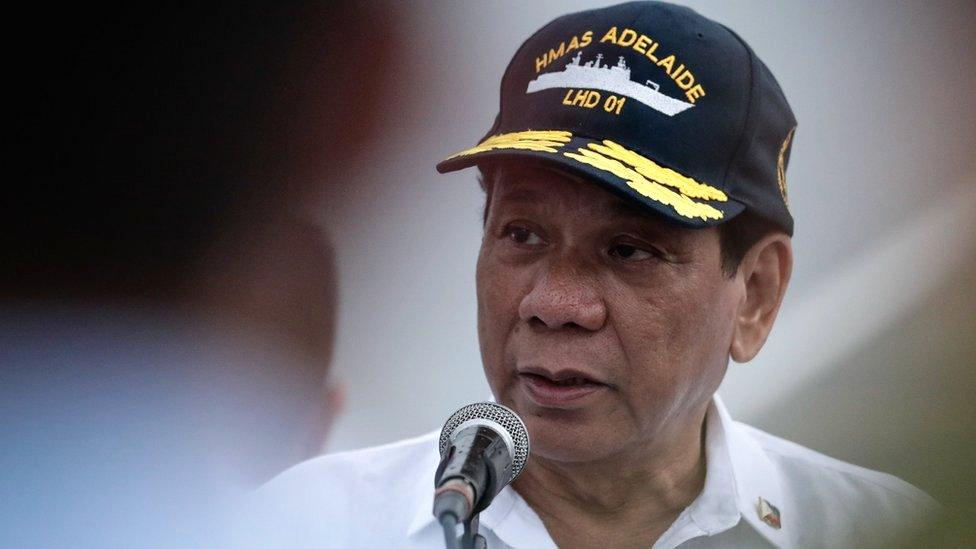Maria Ressa: Philippine journalist is arrested again
- Published
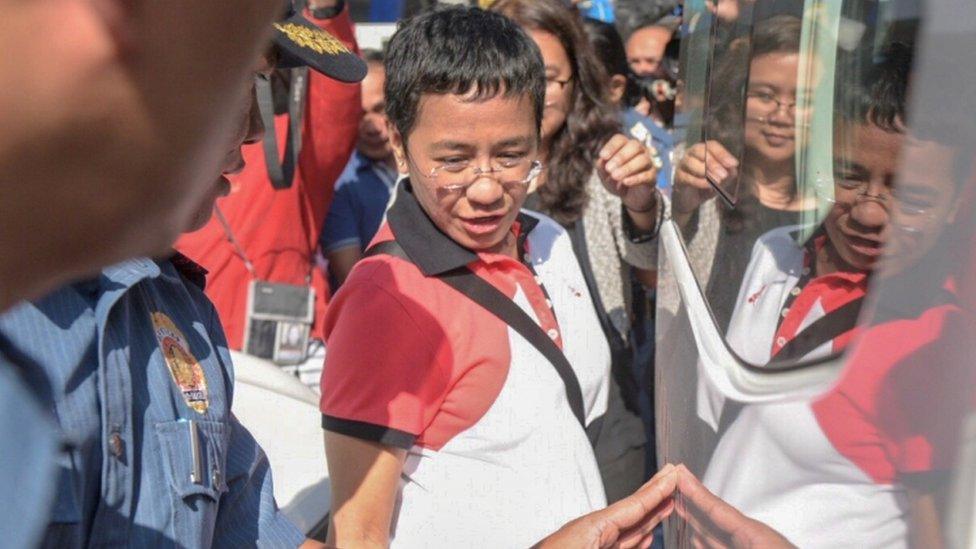
Maria Ressa was detained on arrival at Manila's main international airport
Prominent Philippine journalist Maria Ressa has been re-arrested at Manila airport, allegedly for violating laws barring foreign ownership of media.
Ms Ressa, the founder of news site Rappler, was granted bail after paying P90,000 ($1700; £1300).
It comes weeks after she was arrested over an alleged internet libel case.
Press freedom advocates say the veteran reporter is being targeted by President Rodrigo Duterte because of Rappler's critical reporting on the government.
Eleven legal cases have been filed against the outlet since January 2018.
Ms Ressa, who was named one of Time Magazine's People of the Year in 2018, spoke to reporters as she was arrested.
"Obviously this is yet another abuse of my rights. I am being treated like a criminal when my only crime is to be an independent journalist," she said.
Allow X content?
This article contains content provided by X. We ask for your permission before anything is loaded, as they may be using cookies and other technologies. You may want to read X’s cookie policy, external and privacy policy, external before accepting. To view this content choose ‘accept and continue’.

After her previous arrest on 13 February she spent a night in jail before being released on bail.
Allow X content?
This article contains content provided by X. We ask for your permission before anything is loaded, as they may be using cookies and other technologies. You may want to read X’s cookie policy, external and privacy policy, external before accepting. To view this content choose ‘accept and continue’.

What happened?
Ms Ressa was arrested moments after stepping off a plane from San Francisco, ABS-CBN, reported, external.
Before arriving, apparently aware that she might be met by police officers, she tweeted: "Landing in a short while to face my latest arrest warrant and the 7th time I will post bail."
Allow X content?
This article contains content provided by X. We ask for your permission before anything is loaded, as they may be using cookies and other technologies. You may want to read X’s cookie policy, external and privacy policy, external before accepting. To view this content choose ‘accept and continue’.

She then posted a series of tweets following her arrest, including a photograph from inside the police car.
Allow X content?
This article contains content provided by X. We ask for your permission before anything is loaded, as they may be using cookies and other technologies. You may want to read X’s cookie policy, external and privacy policy, external before accepting. To view this content choose ‘accept and continue’.

Allow X content?
This article contains content provided by X. We ask for your permission before anything is loaded, as they may be using cookies and other technologies. You may want to read X’s cookie policy, external and privacy policy, external before accepting. To view this content choose ‘accept and continue’.

Later she tweeted again, writing: "Am posting bail for 7th time! For being a journalist."
Why was Ressa arrested?
The government accuses Ms Ressa, who has both Philippine and American nationality, of having violated foreign ownership rules and committed securities fraud. According to Philippine law, media organisations must be completely Filipino-owned.
Rappler has denied government allegations that the website is being controlled by an organisation outside of the Phillipines, and press freedom organisations say the charges are designed to intimidate independent journalists.
Human Rights Watch said: "The court case is unprecedented and speaks volumes of the Duterte administration's determination to shut the website down for its credible and consistent reporting on the government."
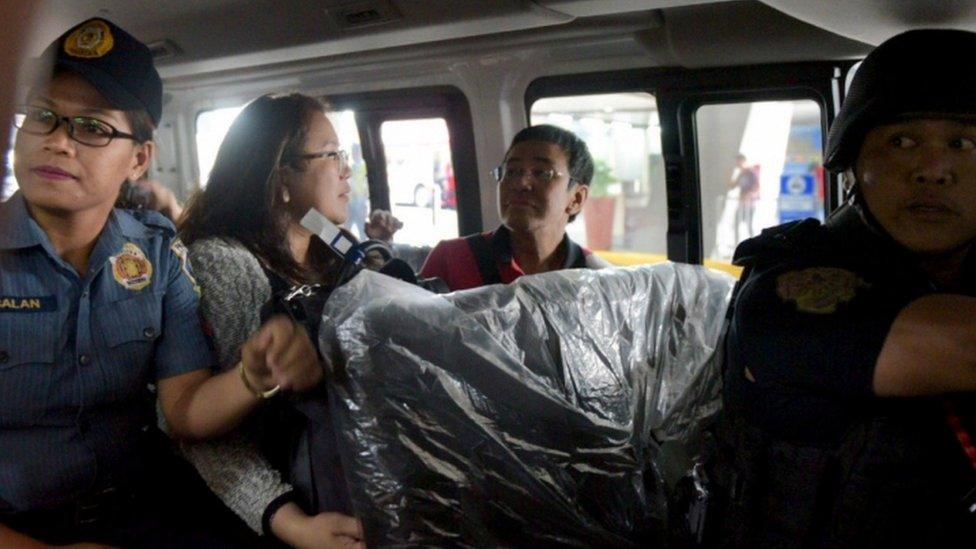
Ms Ressa was taken from the airport in a police car
In February, Ms Ressa was accused of "cyber-libel" over a report on a businessman's alleged ties to a former judge. Two months earlier she had posted bail on tax fraud charges, which she described as "manufactured".
If convicted of one count of tax fraud, she could serve up to a decade in prison. The cyber-libel charge carries a maximum sentence of 12 years.
Arrests raise press freedom concerns
The repeated arrests of Ms Ressa have drawn international condemnation and raised concerns about worsening press freedom in the country.
Rappler has reported extensively on President Deterte's hardline war on drugs, in which police say around 5,000 people have been killed over the past three years. In December, the website reported on Mr Duterte's public admission that he had sexually assaulted a maid.
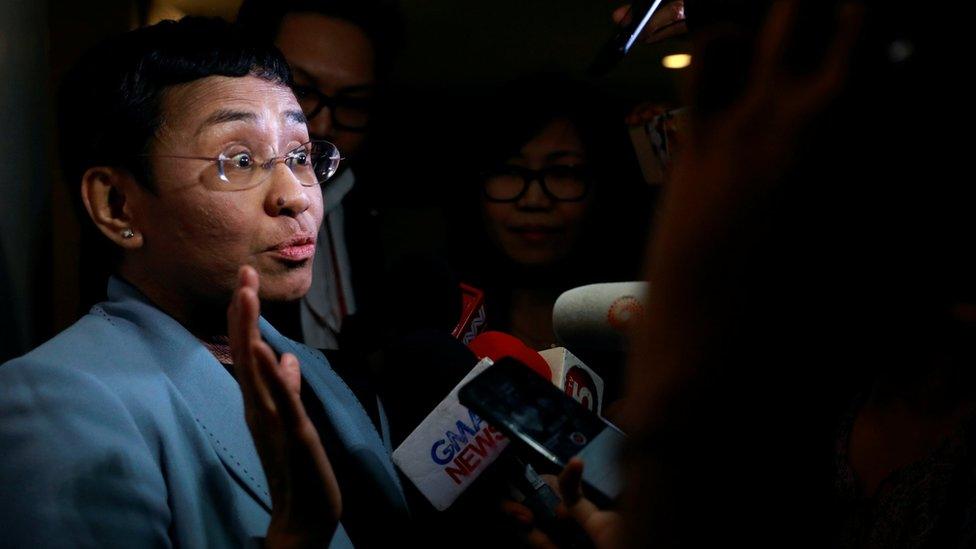
Ms Ressa says the arrest is an attempt to silence Rappler's journalism.
President Rodrigo Duterte has previously denied charges against Ms Ressa are politically motivated, describing the website as "fake news".
Since 1986, 176 journalists have been killed in the Philippines, making it one of the most dangerous in the world for reporters. In 2016, the president was criticised for saying some of those journalists deserved to die.
What is Rappler?
Rappler was founded in 2012 by Ms Ressa and three other journalists and has gone on to become known in the Philippines for its hard-hitting investigations.
It is also one of the few media organisations in the country that is openly critical of President Duterte, regularly interrogating the accuracy of his public statements and criticising his sometimes deadly policies.
The president has banned its reporters from covering his official activities and last year the state revoked the site's licence.
Ms Ressa is a veteran Philippine journalist who, before founding Rappler, spent most of her career with CNN - first as the bureau chief in Manila, and then in Jakarta. She was also the US broadcaster's lead investigative reporter on terrorism in Southeast Asia.
- Published13 February 2019
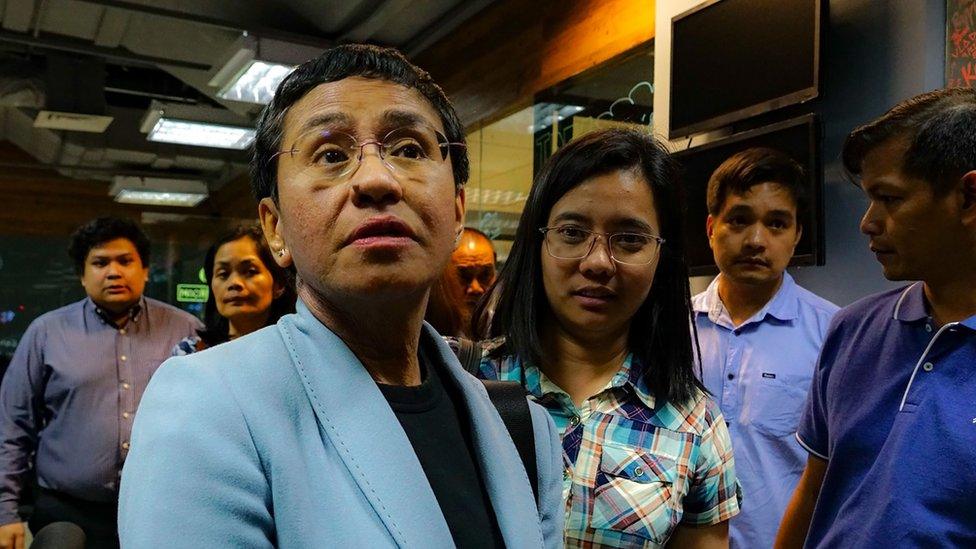
- Published11 November 2018
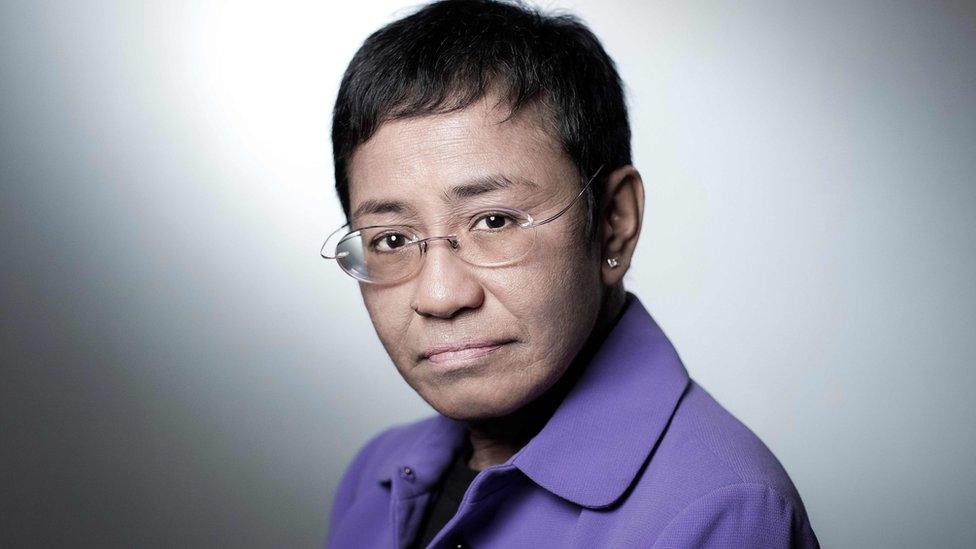
- Published17 January 2018
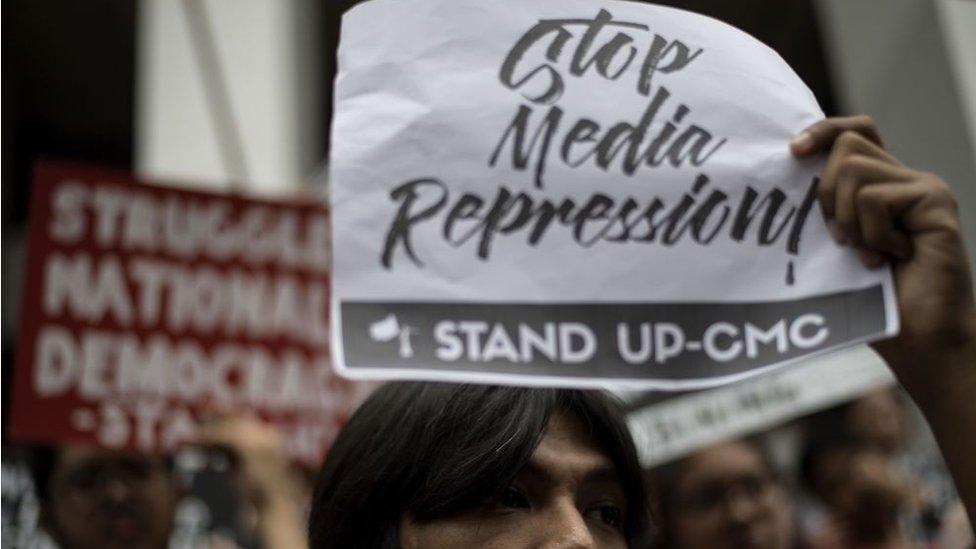
- Published31 December 2018
